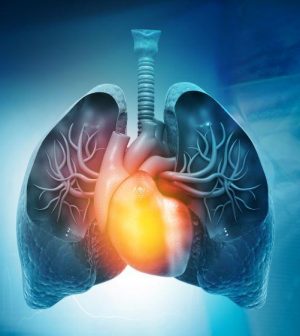- Could Your Grocery Store Meat Be Causing Recurring UTIs?
- Are You Making This Expensive Thermostat Error This Winter?
- Recognizing the Signs of Hypothyroidism
- 10 Strategies to Overcome Insomnia
- Could Artificial Sweeteners Be Aging the Brain Faster?
- Techniques for Soothing Your Nervous System
- Does the Water in Your House Smell Funny? Here’s Why
- Can a Daily Dose of Apple Cider Vinegar Actually Aid Weight Loss?
- 6 Health Beverages That Can Actually Spike Your Blood Sugar
- Treatment Options for Social Anxiety Disorder
Are You a Nose Breather or Mouth Breather? One Might Be Healthier

It turns out that primarily breathing through the mouth isn’t good for your health compared to breathing through the nose, a new study finds.
Breathing through the nose rather than the mouth can lead to lower blood pressure and an overall more relaxed body, lowering the risk of heart disease, researchers found.
“This work advances our knowledge of how nasal breathing affects clinically relevant cardiovascular variables,” concluded the research team led by Joseph Watso, an assistant professor of health and human sciences at Florida State University in Tallahassee.
More than half of U.S. adults say they primarily breathe through their mouth rather than their nose, researchers said in background notes.
Breathing patterns can affect blood pressure and heart rate, which are two predictors of heart disease, due to the crosstalk that occurs between the respiratory and circulatory systems.
Nose breathing has been shown to relax the airways and improve the efficiency of breathing, but up to now its effects on heart health have not been fully explored, researchers said.
For their study, researchers recruited 20 young adult volunteers who were randomly asked to breathe through either their nose or their mouth while at rest or exercising on either a treadmill or a stationary bike.
Researchers found volunteers at rest had a lower average and diastolic blood pressure when they breathed through their nose. Diastolic blood pressure is pressure within the arteries in between heartbeats.
Nasal breathing also shifted the body’s nervous system into a “rest and digest” rather than a “fight or flight” mode, researchers added.
However, that was only during rest. When exercising, there appeared to be no difference between nasal or mouth breathing.
“We interpret the collective data to suggest that nasal compared with oral breathing provides modest, but potentially clinically relevant, improvements in prognostic cardiovascular variables at rest, but not during exercise,” the researchers wrote.
The new study was recently published in the American Journal of Physiology-Regulatory, Integrative and Comparative Physiology.
More information
The Cleveland Clinic has more about mouth breathing.
SOURCE: American Physiological Society, news release, Jan. 17, 2024
Source: HealthDay
Copyright © 2026 HealthDay. All rights reserved.










